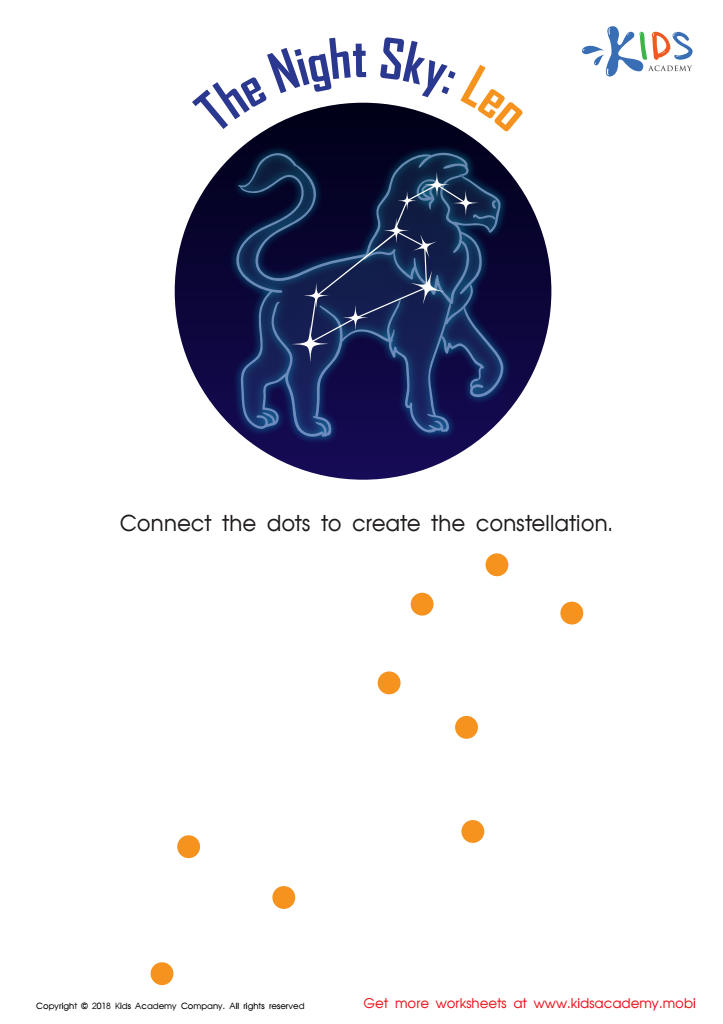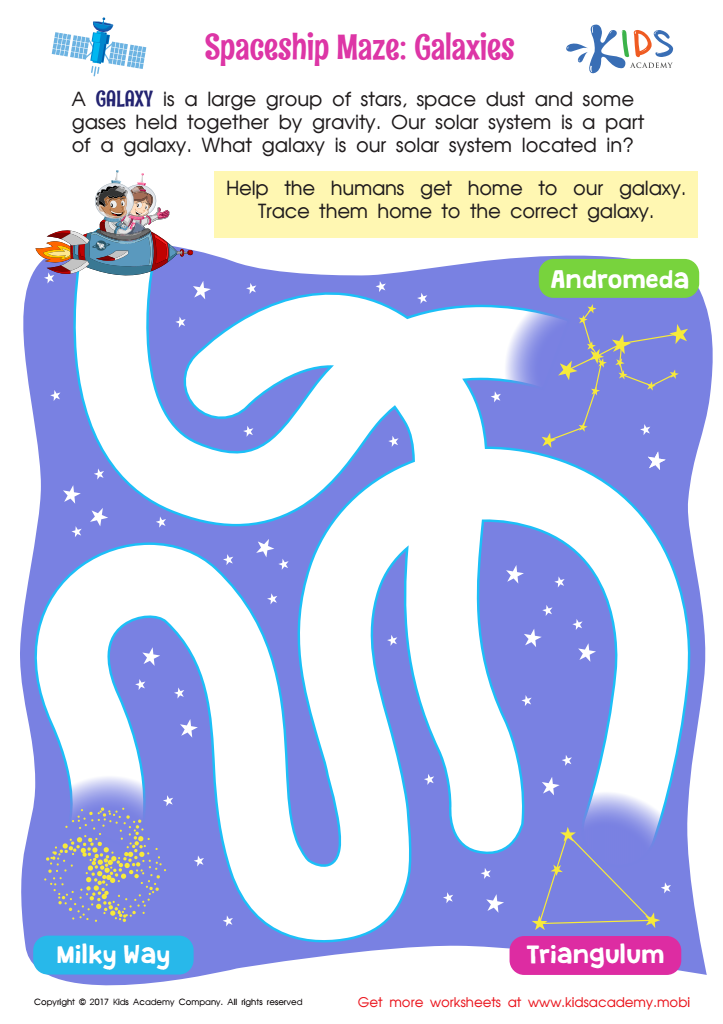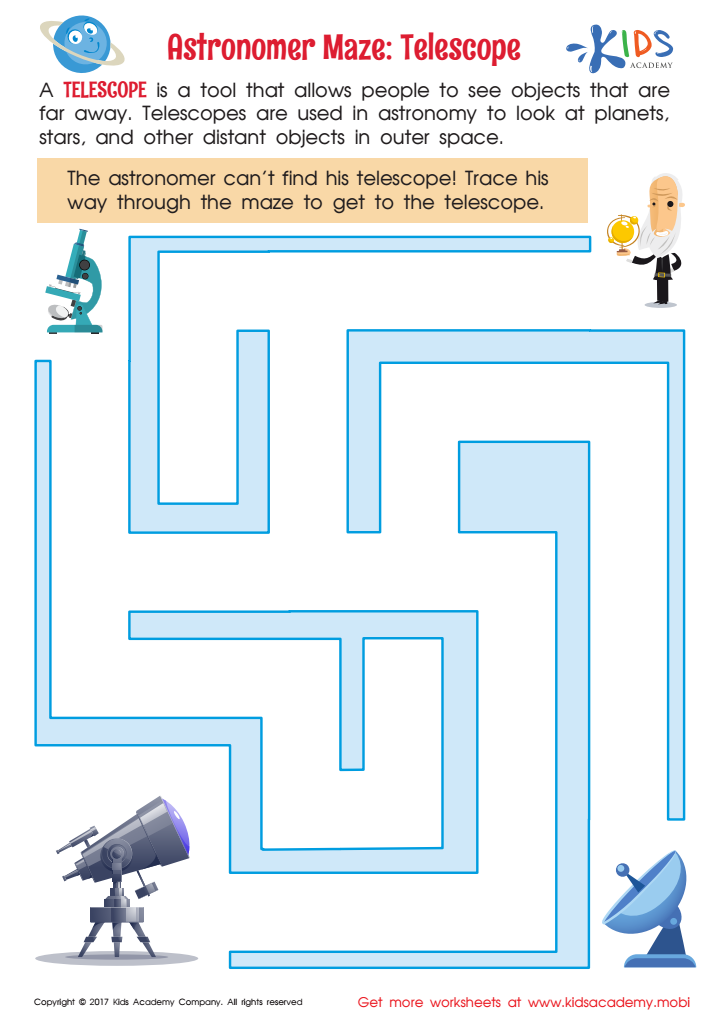Spatial awareness Normal Space Worksheets for Ages 4-6
3 filtered results
-
From - To
Enhance your child's spatial awareness with our expertly crafted Normal Space Worksheets for ages 4-6. Designed to boost essential learning skills, these engaging activities promote spatial reasoning, problem-solving, and critical thinking in young learners. Each worksheet provides exciting challenges that involve shapes, patterns, and puzzle-solving, helping children easily grasp spatial concepts. Perfect for kindergarten and pre-school, these worksheets are fun, educational, and aligned with early childhood learning standards. Foster your child's cognitive development and prepare them for future academic success with our comprehensive collection from Kids Academy. Start building strong spatial skills today!


The Night Sky: Leo Worksheet


Spaceship Maze: Galaxies Worksheet


Astronomer Maze: Telescope Worksheet
Parents and teachers should care about spatial awareness in children aged 4-6 because it is a fundamental cognitive skill essential for everyday activities and future academic success. During these formative years, developing a child's understanding of space, distance, and directions can profoundly impact their ability to interact with their environment effectively.
Firstly, spatial awareness aids in physical coordination and motor skills. Activities like climbing stairs, riding a bike, or engaging in sports rely heavily on a child's ability to judge distances and navigate space. These skills contribute to overall physical health and safety.
Academically, spatial reasoning supports early math and literacy development. Concepts such as shapes, patterns, and understanding spatial terminology ("above," "below," "next to") lay the groundwork for problem-solving and logical thinking skills. Later on, these abilities are crucial for subjects like geometry, science, and technology.
Moreover, spatial awareness fosters social development. Children who can navigate space effectively are better able to participate in group activities, enhancing cooperation and communication skills. For example, games that involve organizing objects or following paths on a playground promote teamwork and social interaction.
In summary, prioritizing spatial awareness for young children equips them with the necessary tools for academic achievement, physical coordination, and social interaction, forming a well-rounded foundation for future learning and daily life.
 Assign to My Students
Assign to My Students















